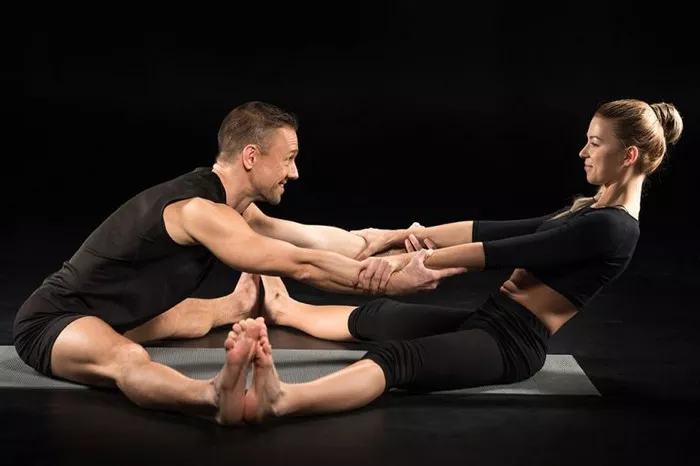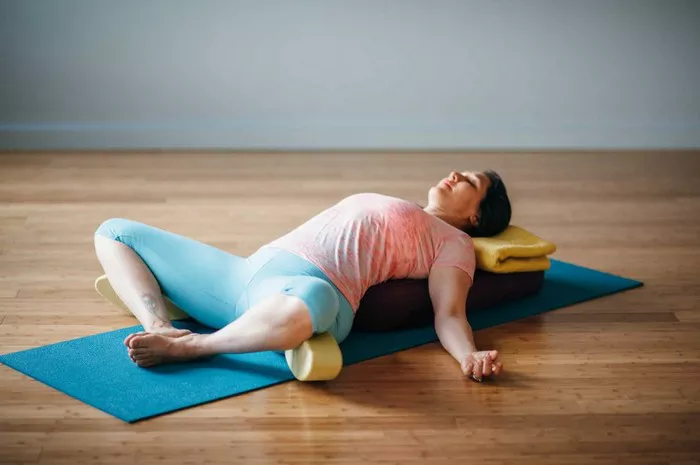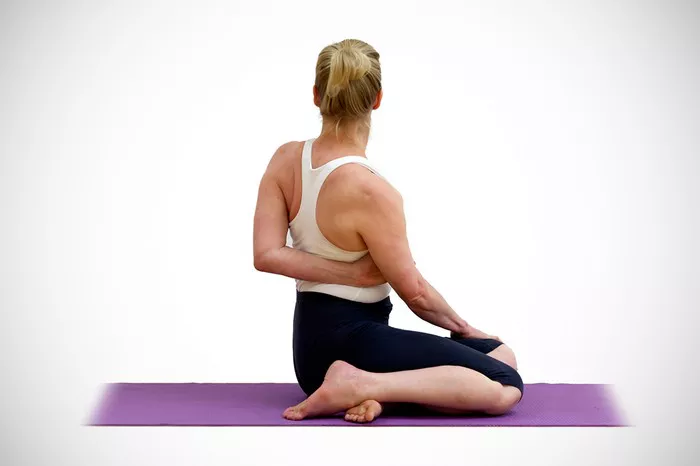Yoga, a time-honored practice originating from ancient India, has evolved and diversified over centuries, giving rise to various forms that cater to different aspects of human well-being. Among these diverse approaches, Zen Yoga stands out as a unique blend of physical postures, breathing techniques, and meditative practices that draws inspiration from Zen Buddhism. In this article, we will explore the meaning of Zen Yoga, its origins, core principles, and the transformative effects it can have on the mind, body, and spirit.
1. Understanding Zen Yoga
Zen Yoga is a holistic practice that incorporates elements of Zen Buddhism into traditional yoga. To fully appreciate Zen Yoga, it’s important to understand its two main components: Zen and Yoga.
Zen Buddhism is a school of Mahayana Buddhism that emphasizes direct experience and meditation as the path to enlightenment. Zen practitioners seek to achieve mindfulness and clarity through “zazen,” which is seated meditation, and other practices that cultivate a deep sense of presence and awareness. In Zen philosophy, the focus is on living in the moment and experiencing life as it truly is, without attachment or judgment.
Yoga, on the other hand, is a philosophical system that dates back over 5,000 years and originated in ancient India. The word “yoga” itself means “union” or “discipline,” signifying the integration of body, mind, and spirit. Traditionally, yoga is comprised of eight limbs, as outlined in the ancient text, the Yoga Sutras of Patanjali. These limbs include ethical guidelines (Yamas and Niyamas), physical postures (Asanas), breath control (Pranayama), withdrawal of the senses (Pratyahara), concentration (Dharana), meditation (Dhyana), and ultimately, enlightenment or liberation (Samadhi).
Zen Yoga combines these two systems into a practice that blends physical movement, meditation, and breath control. It is not just about the physical poses or asanas but emphasizes the cultivation of mindfulness and presence in every aspect of the practice.
2. The Philosophy Behind Zen Yoga
At its core, Zen Yoga is about achieving a state of mindfulness that transcends the physical body and extends into every aspect of life. It encourages practitioners to remain fully present, letting go of distractions, judgments, and ego. This emphasis on mindfulness and awareness is rooted in the Zen Buddhist philosophy of “being here now”—an awareness that fully embraces the present moment without the need to dwell on the past or worry about the future.
Zen Yoga does not promote any particular ideology or religious belief. Instead, it emphasizes personal experience and intuitive knowledge. The practice encourages individuals to explore their own inner landscape, deepen their connection with themselves, and discover their true nature. This leads to the development of a balanced mind, a healthy body, and a peaceful spirit.
In Zen Yoga, every movement and every breath is an opportunity to practice mindfulness. The asanas (yoga poses) are performed slowly and deliberately, with full awareness of the body’s alignment and energy flow. The breath is the key to maintaining focus and presence. It’s not about achieving the perfect pose or completing an intense workout, but rather about cultivating a sense of inner peace and clarity with each movement.
3. Key Elements of Zen Yoga
Zen Yoga is a multi-dimensional practice that integrates several key elements to help practitioners attain greater mindfulness and harmony:
Mindfulness and Meditation
The central practice in Zen Yoga is meditation, especially zazen (seated meditation), which encourages stillness and awareness. In a typical Zen Yoga session, meditation is often incorporated at the beginning or end of the practice to help calm the mind, enhance concentration, and promote emotional stability. Unlike some styles of yoga that may involve extensive verbal guidance or a focus on physical postures, Zen Yoga places a heavy emphasis on inner stillness and personal reflection.
Meditation in Zen Yoga is not only about sitting in silence but also about observing one’s thoughts and emotions without attachment. It encourages practitioners to witness the flow of thoughts and sensations without judgment, cultivating a deeper sense of inner peace and acceptance.
Physical Postures (Asanas)
The physical component of Zen Yoga involves a series of asanas (postures), but the focus is different from that of more dynamic yoga styles like Vinyasa or Ashtanga. While these other styles may focus on achieving strength, flexibility, or endurance, Zen Yoga places more emphasis on mindful movement and body awareness.
In Zen Yoga, the physical postures are performed with slow, deliberate movements, and there is a conscious connection to the breath. The movements are meant to promote relaxation, release tension, and enhance energy flow. Poses like Downward Dog, Warrior, and Tree Pose are often practiced, but the key to Zen Yoga is in the awareness of the present moment while performing each posture.
The primary goal of these asanas is not to “achieve” a perfect posture but to develop a mindful connection between body and mind. Through this practice, Zen Yoga practitioners develop increased body awareness, better alignment, and a heightened sense of presence.
Breathing (Pranayama)
Breathing, or pranayama, is a crucial element in Zen Yoga. Conscious breathing is often integrated into the practice as a means of calming the nervous system, reducing stress, and enhancing mindfulness. In many Zen Yoga classes, the breath is synchronized with the movement to help practitioners stay centered and focused.
There are several types of breathing techniques that may be used in Zen Yoga, such as:
Abdominal Breathing: Encourages deep, diaphragmatic breaths to promote relaxation and reduce tension.
Alternate Nostril Breathing: A calming practice that balances the nervous system.
Ujjayi Breathing: A technique that involves breathing through the nose with a slight constriction in the throat, creating a calming sound and helping to focus the mind.
Breathing is seen not only as a physical function but also as a tool for bringing awareness to the present moment. In Zen Yoga, the breath becomes a bridge between the body, mind, and spirit.
Alignment and Postural Awareness
Another critical component of Zen Yoga is the emphasis on proper alignment in each posture. This alignment is not only physical but also energetic. Zen Yoga practitioners focus on the way energy moves through the body and seek to maintain an optimal flow of energy during each pose. This is done by paying close attention to body alignment and making small adjustments to ensure that each posture is both comfortable and effective.
Proper alignment helps prevent injury, increases the effectiveness of the practice, and enhances overall well-being. It also cultivates a deeper sense of mindfulness, as practitioners become attuned to the subtle movements of their body.
4. Benefits of Zen Yoga
Zen Yoga offers a wide range of benefits that touch on every aspect of a person’s being: mental, physical, and emotional. Here are some of the key benefits of Zen Yoga practice:
Mental Clarity and Focus
One of the most notable benefits of Zen Yoga is its ability to enhance mental clarity and focus. Through mindful meditation, slow movement, and conscious breathing, practitioners learn to cultivate a deep sense of present-moment awareness. This awareness helps clear the mind of distractions, reduces mental chatter, and improves concentration. With consistent practice, Zen Yoga can help you become more mentally present in all areas of your life.
Stress Reduction
Zen Yoga is particularly effective in reducing stress and anxiety. The combination of meditation, deep breathing, and mindful movement has a calming effect on the nervous system, helping to lower cortisol levels (the stress hormone). As practitioners learn to let go of tension and focus on the present, they experience greater relaxation and emotional balance.
Improved Flexibility and Strength
Although Zen Yoga is not as physically demanding as some other styles of yoga, it still promotes flexibility, strength, and balance. The gentle movements and mindful stretches increase range of motion in the joints, improve muscle tone, and promote better posture. Over time, Zen Yoga practitioners may notice greater physical vitality and a reduction in chronic aches and pains.
Emotional Balance
Zen Yoga’s emphasis on mindfulness can have a profound impact on emotional health. The practice teaches you to observe your emotions without judgment, which allows for greater emotional regulation and balance. By becoming more attuned to your emotional state, you can begin to release negative patterns of thought and behavior, fostering a more peaceful and balanced outlook on life.
Increased Self-Awareness
The practice of Zen Yoga encourages introspection and self-awareness. By cultivating mindfulness, practitioners develop a deeper understanding of their inner landscape, including their thoughts, emotions, and physical sensations. This self-awareness leads to greater self-acceptance, emotional healing, and personal growth.
5. Zen Yoga in Everyday Life
While Zen Yoga is traditionally practiced on the mat, its principles can be applied to everyday life. The key teachings of mindfulness, presence, and non-attachment can help practitioners navigate their daily lives with greater ease and clarity. In stressful situations, Zen Yoga practitioners can draw on their meditation and breathing techniques to stay grounded and calm. In moments of joy, they can embrace the present fully, savoring each experience without distraction or judgment.
The ultimate goal of Zen Yoga is to integrate the lessons learned on the mat into one’s daily life. The practice teaches individuals to live with more awareness, gratitude, and compassion, fostering a deeper sense of connection to themselves and others.
Conclusion
Zen Yoga is a powerful and transformative practice that blends the physical aspects of yoga with the spiritual and meditative practices of Zen Buddhism. Through mindful movement, meditation, and breathing techniques, Zen Yoga helps practitioners cultivate greater awareness, clarity, and emotional balance. It promotes stress reduction, physical vitality, and a deeper sense of inner peace.
Incorporating Zen Yoga into your life can be a deeply fulfilling journey of self-discovery and personal growth. Whether you are seeking stress relief, mental clarity, or physical well-being, Zen Yoga offers a path that integrates body, mind, and spirit, helping you live with more presence and purpose.
By embracing the present moment and practicing mindful living, Zen Yoga can become a powerful tool for creating lasting change and cultivating a harmonious life.
Related Topics:
























